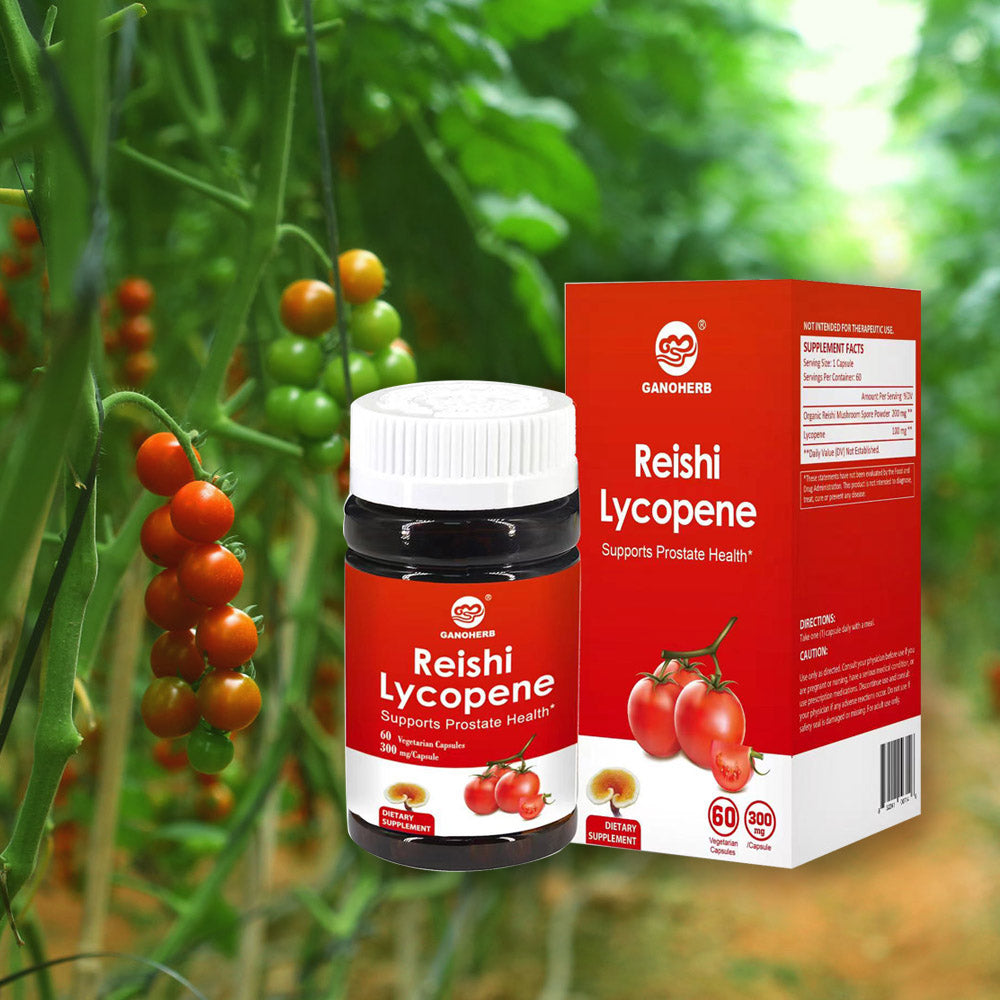How much lycopene in 50 mg of tomato paste
Lycopene is a powerful antioxidant that’s widely celebrated for its potential health benefits. Derived from tomatoes, this natural compound has been linked to numerous wellness advantages, including improving heart health, protecting against cancer, and promoting skin health. But how much lycopene can you find in a small amount of tomato paste, say 50 mg? This question might seem trivial at first glance, but it holds the key to understanding how much of this valuable nutrient we can actually consume from everyday foods.

In this blog, we’ll dive deep into the content of How much lycopene in 50 mg of tomato paste, explore its health benefits, and discuss the role of high-quality lycopene supplements, such as those developed by GanoHerb Group, a leader in health-focused innovations.
Understanding Lycopene: A Powerful Antioxidant
Lycopene is a naturally occurring carotenoid, a class of plant pigments responsible for the red and pink hues in fruits and vegetables, especially tomatoes. Unlike many other antioxidants, lycopene is fat-soluble, meaning it is best absorbed by the body when consumed with a small amount of healthy fats, such as olive oil or avocado.
Tomato paste, one of the most concentrated forms of tomato products, is a rich source of lycopene. The process of cooking tomatoes, as done in tomato paste, actually increases the bioavailability of lycopene, making it easier for the body to absorb. This makes tomato paste an excellent source of lycopene for anyone looking to boost their intake of this potent antioxidant.
Lycopene Content in 50 mg of Tomato Paste: How Much is It?
How much lycopene in 50 mg of tomato paste? Tomato paste is a highly concentrated product made by cooking tomatoes and removing much of the water content. This means that compared to raw tomatoes, tomato paste packs a much higher concentration of nutrients, including lycopene. But what exactly does "50 mg of tomato paste" mean in terms of lycopene content?
On average, tomato paste contains about 6.8 mg of lycopene per 100 grams of paste. Therefore, in just 50 mg of tomato paste (which is a fraction of a gram), you’re getting a very small yet meaningful amount of lycopene—roughly 0.0034 mg (or 3.4 micrograms). While this is a minuscule amount, it's important to note that consuming regular servings of tomato paste throughout the day can gradually add up to a substantial intake of lycopene.
The Health Benefits of Lycopene
Though 50 mg of tomato paste might seem like a tiny portion, it still contributes to your overall daily intake of lycopene, which can have profound health benefits. Here's a closer look at how lycopene works in the body:
1. Supporting Heart Health
Lycopene is one of the most studied antioxidants for cardiovascular health. Research suggests that lycopene may help reduce the risk of heart disease by lowering cholesterol levels and reducing oxidative stress. A study published in The American Journal of Clinical Nutrition found that a diet rich in lycopene can help reduce blood pressure and improve arterial health.

2. Cancer Prevention and Treatment
Lycopene’s potential as a cancer-fighting compound has garnered significant attention. It has been linked to a reduced risk of several types of cancer, including prostate, lung, and breast cancer. Studies show that the antioxidant properties of lycopene help neutralize free radicals, which can damage cells and lead to cancer development. Additionally, lycopene has shown promise in slowing the progression of existing cancer cells.
3. Skin Health and Anti-Aging
Lycopene’s benefits don’t stop at internal health. It also plays a crucial role in protecting the skin from UV damage. Regular consumption of lycopene has been associated with a reduction in the signs of aging, including wrinkles and skin sagging. This is particularly relevant for those who spend a lot of time in the sun and want to protect their skin from premature aging.
The Role of Lycopene Supplements
While adding tomato paste to your meals is an excellent way to consume lycopene, some people may benefit from a more concentrated source. Lycopene supplements, like those developed by GanoHerb Group, provide a convenient and potent alternative to ensure adequate intake.
GanoHerb Group, a leader in health innovation, has developed high-quality lycopene supplements that are derived from natural tomato fruits. These supplements not only provide the antioxidant benefits of lycopene but often combine it with other wellness-promoting ingredients, such as organic reishi mushroom (Ganoderma), which is known for its immune-boosting properties. This combination is designed to support both internal and external health, including improving immune function and promoting healthy skin.
Benefits of Lycopene Supplements:
Convenience: Taking one capsule of lycopene daily with meals is a hassle-free way to boost your antioxidant intake.
Higher Bioavailability: Supplementing with lycopene ensures you get a more concentrated dose of this powerful antioxidant.
Added Health Benefits: Supplements like those from GanoHerb Group often include additional beneficial compounds, such as reishi mushroom, which enhances the immune system, reduces stress, and promotes overall physical balance.
GanoHerb Group: Leading the Way in Lycopene Supplements
GanoHerb Group is renowned for its commitment to quality and innovation in the health industry. Established in 1989, GanoHerb has a rich history of developing premium products, including lycopene supplements. What sets GanoHerb apart is their integration of scientific research, cutting-edge cultivation techniques, and rigorous quality control standards to produce supplements that are both effective and safe.

The company has spent decades refining their processes, including the organic cultivation of Ganoderma lucidum (reishi mushroom) and lycopene-rich tomatoes. Their supplements are manufactured under strict GMP (Good Manufacturing Practice) guidelines to ensure the highest quality and purity. This dedication to excellence makes GanoHerb a trusted brand for consumers seeking to enhance their overall health with natural, effective ingredients.
Conclusion: Lycopene, Tomato Paste, and Health
So do you know How much lycopene in 50 mg of tomato paste now? In conclusion, while 50 mg of tomato paste may seem small, it still offers a valuable contribution to your daily lycopene intake. Regular consumption of lycopene-rich foods like tomato paste can help protect against heart disease, cancer, and promote healthy skin. However, for those seeking a more potent and convenient source of lycopene, supplements such as those from GanoHerb Group offer a highly effective way to harness the full power of this antioxidant.
Remember, lycopene is not just a nutrient; it’s a powerful ally in your quest for better health. Whether you’re enjoying tomato paste in your meals or taking lycopene supplements, you’re making a smart choice for your long-term wellness.





